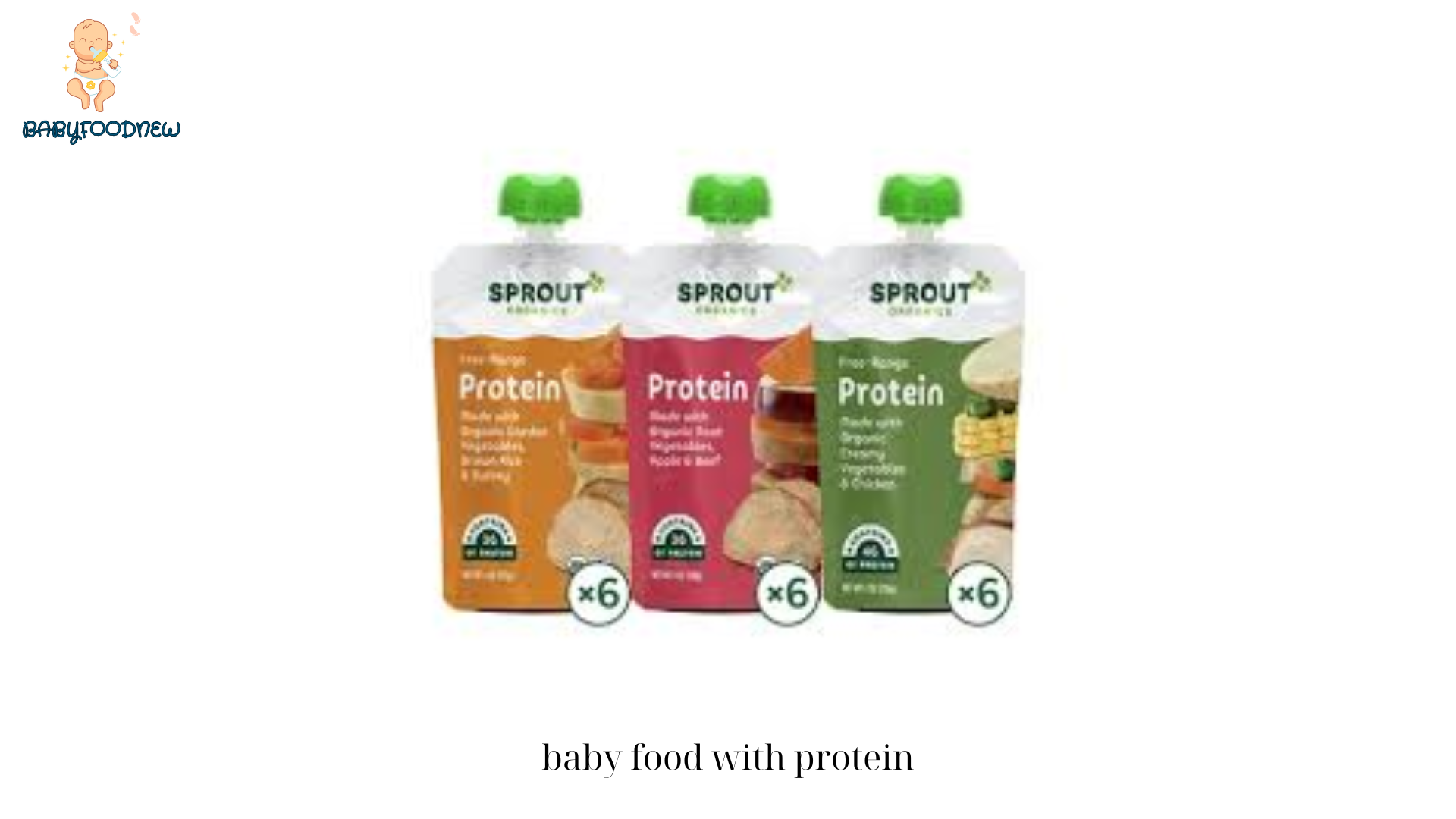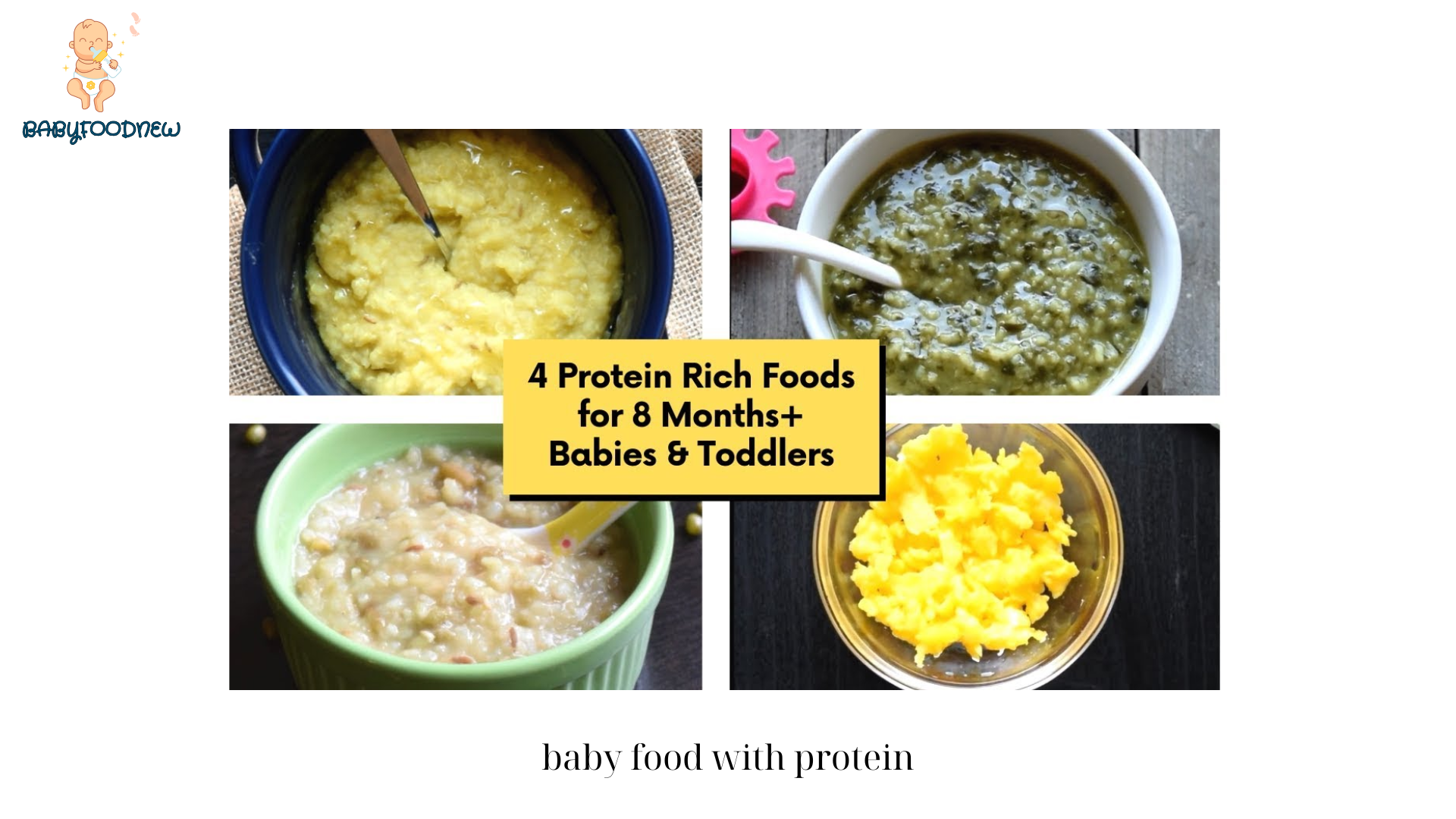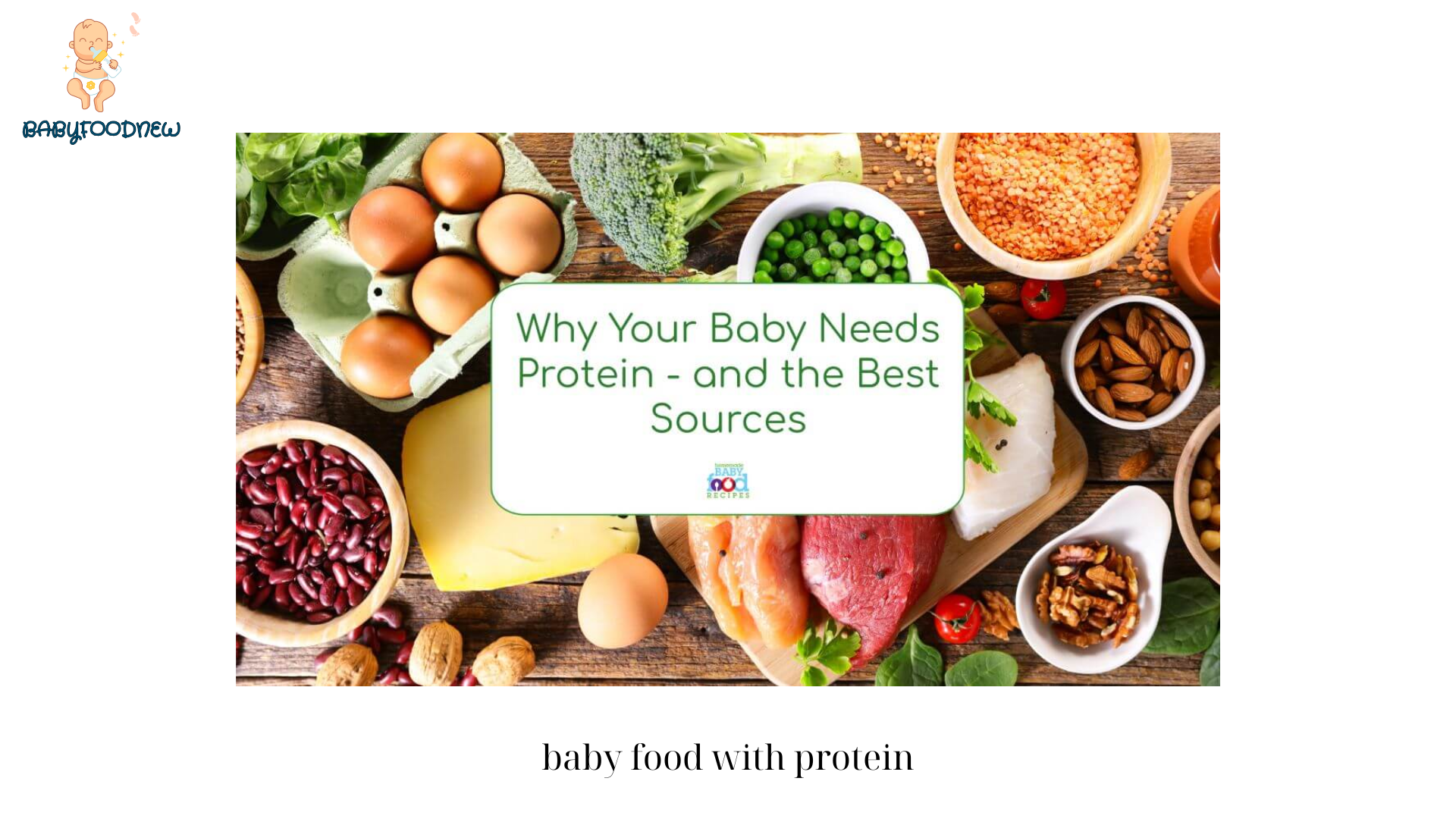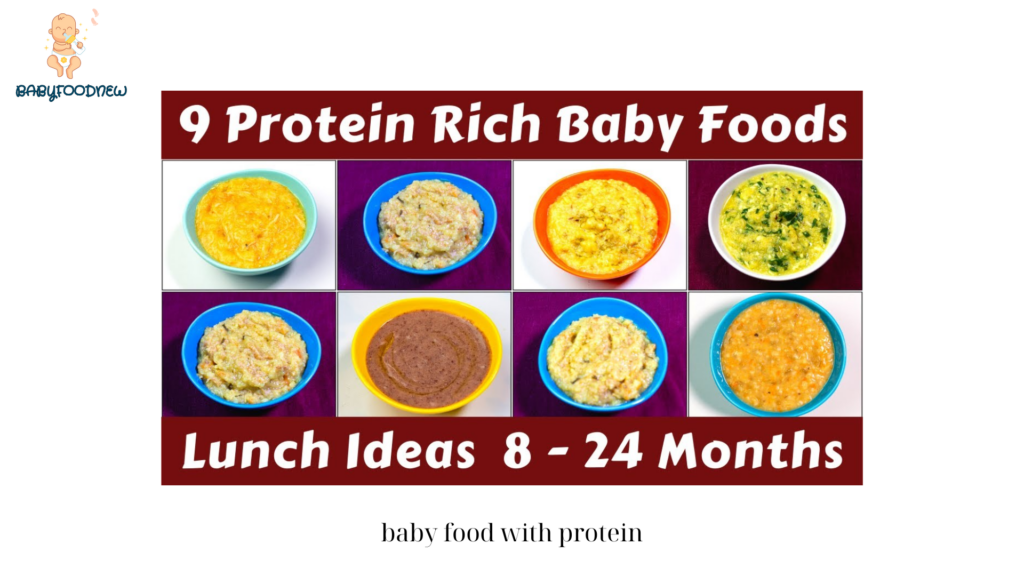Table of Contents
ToggleName to QR Code Generator
As a parent, ensuring that your baby receives proper nutrition is a top priority. Among the essential nutrients, protein plays a crucial role in your little one’s growth and development. It is responsible for building and repairing tissues, supporting the immune system, and producing enzymes and hormones. Introducing baby food with protein into your child’s diet is an excellent way to provide them with the necessary building blocks for healthy growth. In this article, Babyfoodnew will explore the importance of protein in a baby’s diet and discuss various options for incorporating protein-rich foods into their meals.
Baby Food with Protein: Nourishing Your Little One’s Growth

Understanding Protein for Babies
Protein is made up of amino acids, which are the building blocks of baby food with protein. It is essential for the development of muscles, bones, skin, and organs. For babies, protein is particularly crucial as they are in a phase of rapid growth and development. Adequate protein intake supports brain development, helps in the formation of new cells, and contributes to overall physical growth.
Protein Requirements for Babies
The protein in baby food with protein requirements for babies vary depending on their age and weight. In general, infants need approximately 10 grams of protein per day during the first six months of life. As they grow older, their protein needs increase. By the age of one, most babies require around 14-20 grams of protein daily.
Introducing Protein into Your Baby’s Diet
When it comes to introducing baby food with protein to your baby, it is important to do so gradually and according to their developmental stage. The American Academy of Pediatrics recommends starting solid foods around six months of age, with a focus on iron-rich foods and gradually introducing protein sources, such as pureed meats, poultry, fish, eggs, and legumes.
Protein-Rich Baby Food Options
- Pureed Meats: Pureed meats, such as chicken, beef, or turkey, are excellent protein sources for babies. Ensure that the meat is cooked thoroughly, pureed to a smooth consistency, and free from any bones or skin.
- Fish: Fish is rich in baby food with protein and omega-3 fatty acids, which are beneficial for brain development. Opt for low-mercury fish varieties like salmon, cod, or tilapia. Ensure that the fish is cooked well and carefully deboned before serving to your baby.
- Eggs: Eggs are a versatile and nutritious protein source for baby food with protein. Start by introducing well-cooked and mashed yolks, as they are easier to digest. As your baby grows, you can gradually introduce scrambled eggs or omelets.
- Yogurt: Yogurt is not only a great source of protein but also provides beneficial probiotics for your baby’s digestive health. Choose plain, unsweetened yogurt and avoid flavored varieties that may contain added sugars.
- Legumes: Beans, lentils, and chickpeas are excellent plant-based protein sources for babies. They are also rich in fiber, vitamins, and minerals. Start with well-cooked and mashed legumes, and gradually introduce different varieties and textures of baby food with protein.
- Tofu: Tofu is a soy-based protein option that can be introduced to babies around eight months of age. It is a good alternative for vegetarian or vegan families. Ensure that the tofu is soft and well-cooked baby food with protein before serving to your baby.
- Cheese: Cheese can be introduced to babies around eight months of age, as long as there are no known allergies or sensitivities. Opt for mild and soft varieties like mozzarella or cottage cheese, and ensure they are cut into small, easily manageable pieces.
- Quinoa: Quinoa is a nutritious and protein-rich grain that can be introduced to babies around eight months of age. It is gluten-free and provides a complete source of protein, along with essential amino acids.

Preparing Homemade Baby Food with Protein
Preparing homemade baby food with protein is a great way to ensure the freshness and quality of ingredients. Here are some tips for making protein-rich baby food at home:
- Choose fresh and organic ingredients baby food with protein whenever possible.
- Cook protein sources thoroughly to ensure they are soft and easily mashed or pureed.
- Use a blender or food processor to achieve a smooth and consistent texture in baby food with protein.
- Avoid adding any salt, sugar, or seasonings to the baby food.
- Start with small portions and gradually increase the quantity as your baby’s appetite grows.
- Store homemade baby food in small, airtight containers or ice cube trays in the freezer for future use.
Consulting with Your Pediatrician
Before introducing any new foods, including those rich in protein, it is important to consult with your pediatrician. They can provide guidance based on your baby’s specific needs, as well as any potential allergies or dietary restrictions.

Conclusion
Introducing baby food with protein is an essential part of your baby’s diet and contributes to their overall growth and development. With a variety of protein-rich options available, you can provide a well-rounded and nutritious diet for your little one. Remember to introduce foods gradually, consider your baby’s developmental stage,and consult with your pediatrician for personalized recommendations. By nourishing your baby with protein-rich foods, you are setting them on a path to a healthy and thriving future.
Related Posts:
- Best Books on Baby Nutrition: A Comprehensive Guide…
- Avocado Baby Nutrition: Discover the Power of this Superfood
- Baby Nutrition App: Your Guide to Nourishing Your Little One
- Baby Carrots Nutrition: Uncovering the Health Benefits
- How Baby Get Nutrition in Womb? Exploring the Fact…
- Protein Baby Food: Nourishing Your Little One with…


